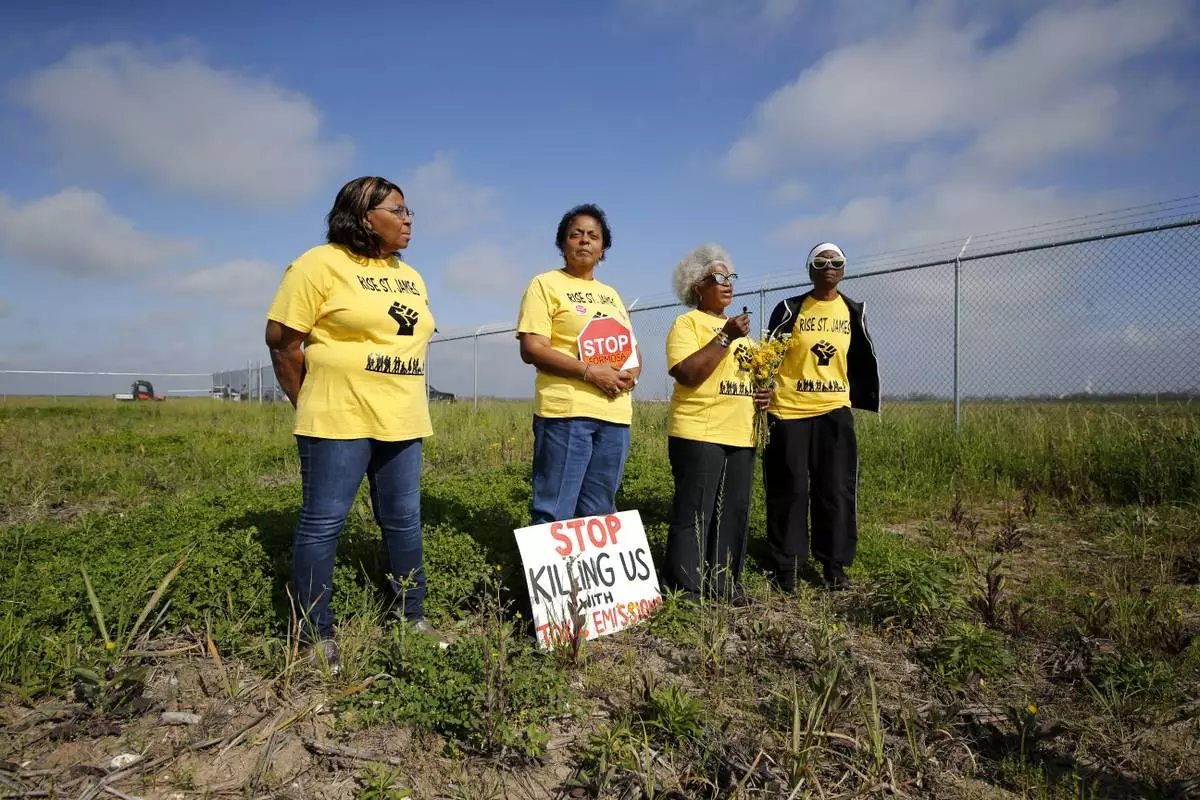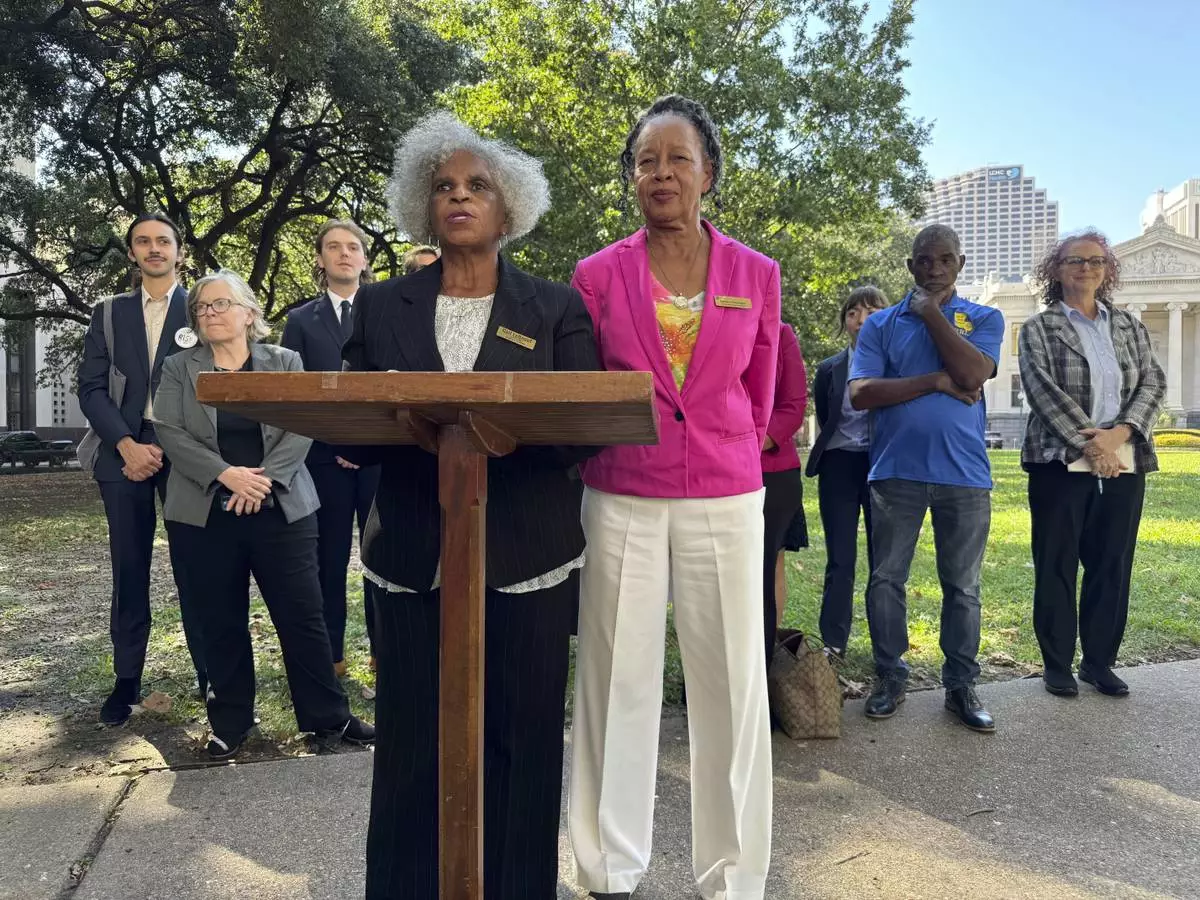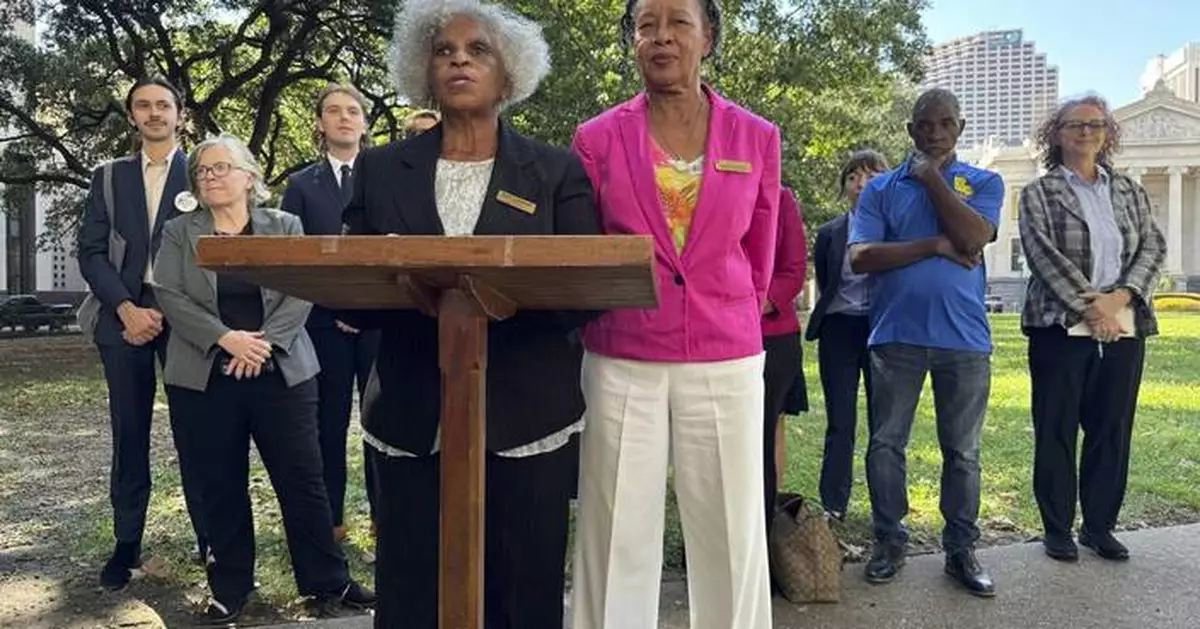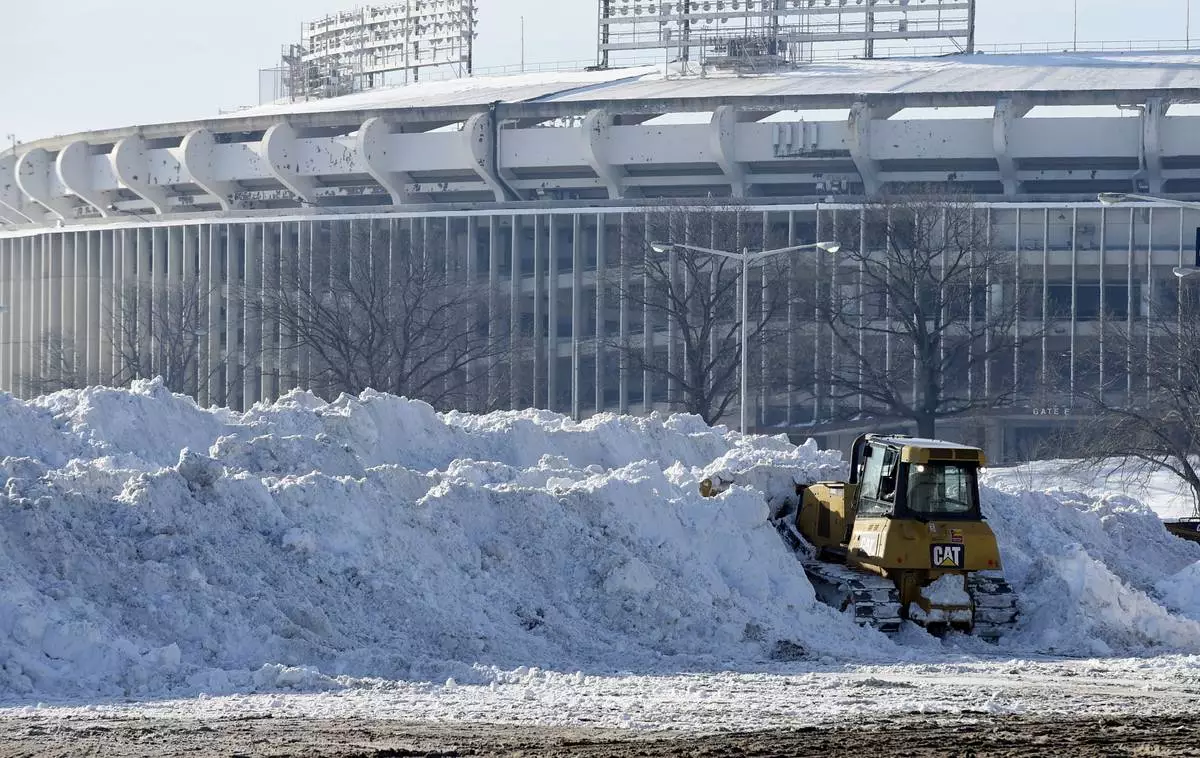NEW ORLEANS (AP) — A federal appellate court is reviewing a civil rights lawsuit alleging a south Louisiana parish engaged in racist land-use policies to place polluting industries in majority-Black communities.
The Fifth U.S. Circuit Court of Appeals in New Orleans heard oral arguments on Monday for a lawsuit filed by community groups claiming St. James Parish "intentionally discriminated against Black residents” by encouraging industrial facilities to be built in areas with predominantly Black populations “while explicitly sparing White residents from the risk of environmental harm.”
The groups, Inclusive Louisiana, Rise St. James and Mt. Triumph Baptist Church, seek a halt to future industrial development in the parish. They say they have suffered health impacts from pollution, diminished property values and violations of religious liberty as a result of the parish's land use system.
The plaintiffs say that 20 of the 24 industrial facilities were in two sections of the parish with majority-Black populations when they filed the complaint in March 2023.
The parish is located along a heavily industrialized stretch of the Mississippi River between New Orleans and Baton Rouge, Louisiana, known as the Chemical Corridor, often referred to by environmental groups as “Cancer Alley” because of the high levels of suspected cancer-causing pollution emitted there.
The lawsuit comes as the federal government has taken steps during the Biden administration to address the legacy of environmental racism. Federal officials have written stricter environmental protections and committed tens of billions of dollars in funding.
“The decisions made in this courtroom will resonate far beyond our borders, impacting frontline communities nationwide who are yearning for acknowledgment and accountability,” said Shamell Lavigne, a St. James Parish resident and a leader with Rise St. James, a local environmental justice organization. “We are advocating for our future and the wellbeing of our children.”
In November 2023, U.S. District Judge Carl Barbier of the Eastern District of Louisiana had dismissed the lawsuit against St. James Parish largely on procedural grounds, ruling the plaintiffs had filed their lawsuit too late. But he added, “this Court cannot say that their claims lack a basis in fact or rely on a meritless legal theory.”
Barbier had accepted the parish's argument that the lawsuit hinged on its 2014 land-use plan, which generally shielded white neighborhoods from industrial development and left majority-Black neighborhoods, schools and churches without the same protections. The plan also described largely Black sections of the parish as “future industrial” sites, a classification described by the plaintiffs as a form of “racial cleansing.”
Regardless, the plaintiffs had missed the legal window to sue the parish by not filing their lawsuit within one year after the land-use plan was formalized, as required by statute of limitations laws, the judge had ruled.
During the appeals hearing, Fifth Circuit Court Judge Catharina Haynes said that the argument raised by the parish “basically makes it sound like if you didn’t sue within a year, well, heck, you can be discriminated against in a bunch of different ways for the rest of eternity.”
Carroll Devillier, Jr., a lawyer representing the parish, responded that residents had already had the opportunity to challenge the 2014 land use plan when it was being formulated. He also said the plaintiffs “have nothing” to prove they suffered from harms from discrimination in the year before they filed their lawsuit in March 2023.
Haynes also observed that parish officials, including those representing majority Black areas, had voted to support the 2014 land-use plan. “Why would you vote to discriminate against yourself?” she asked.
Pamela Spees, a lawyer for the Center of Constitutional Rights representing the plaintiffs, said the land-use plan could be approved by government officials but still reinforce discrimination.
After the hearing, Spees said that the approval of the land use plan had to be understood in the context of ongoing structural racism.
At its core, the lawsuit alleges civil rights violations under the 13th and 14th amendments, stating the land-use system in the parish allowing for industrial buildout primarily in majority-Black communities remains shaped by the history of slavery, white supremacy and Jim Crow laws and governance.
The parish's 2014 land use plan is just one piece of evidence among many revealing persistent and ongoing discrimination by the parish, Spees said.
As evidence of more recent alleged discrimination, the lawsuit highlights the parish's decision in August 2022 to impose a moratorium on large solar complexes after a proposed 3,900-acre (1,580-hectare) solar project upset residents of the mostly white neighborhood of Vacherie, who expressed concerns about lowering property values and debris from storms. The parish did not take up a request for a moratorium on heavy industrial expansion raised by the plaintiffs, the lawsuit states.
The parish's lawyer, Devillier, Jr., told judges the solar moratorium had applied to the entire parish and that the plaintiffs' request for a moratorium on industrial expansion, which initially came in the form of a letter sent by the plaintiffs in 2019, was “never formally considered" by the parish.
The lawsuit also argues the parish failed to identify and protect the likely hundreds of burial sites of enslaved people by allowing industrial facilities to build on and limit access to the areas, preventing the descendants of slaves from memorializing the sites. The federal judge tossed out that part of the lawsuit, noting the sites were on private property not owned by the parish.
Lawyers for St. James Parish have said the lawsuit employed overreaching claims and “inflammatory rhetoric." Victor J. Franckiewicz, who has served as special counsel to St. James Parish for land-use matters since 2013, declined to comment after the hearing. St. James Parish did not respond to a request for comment.
“How can a judge rule a statute of limitations on clean air, clean water and clean soil? There should be none,” said Gail LeBoeuf, 72, a life-long St. James resident and a plaintiff in the case who co-founded Inclusive Louisiana.
The U.S. Environmental Protection Agency found in a 2003 report that St. James Parish ranked higher than the national average for certain cancer deaths. Both majority Black sections of the parish are ranked as having a high risk of cancer from toxic pollutants according to an EPA screening tool based on emissions reported by nearby facilities, the complaint noted.
Jack Brook is a corps member for The Associated Press/Report for America Statehouse News Initiative. Report for America is a nonprofit national service program that places journalists in local newsrooms to report on undercovered issues. Follow Brook on the social platform X: @jack_brook96.

FILE - From left, Myrtle Felton, Sharon Lavigne, Gail LeBoeuf and Rita Cooper, members of RISE St. James, conduct a live stream video on property owned by Formosa in St. James Parish, La., Wednesday, March 11, 2020. (AP Photo/Gerald Herbert, File)

Gail LeBoeuf and Barbara Washington, co-founders of the environmental justice organization Inclusive Louisiana and plaintiffs in a case alleging environmental racism in St. James Parish, Louisiana, speak at a press conference after a hearing for their case at the Fifth Circuit Court of Appeals in New Orleans on Monday, Oct. 7, 2024. (AP/Jack Brook)










